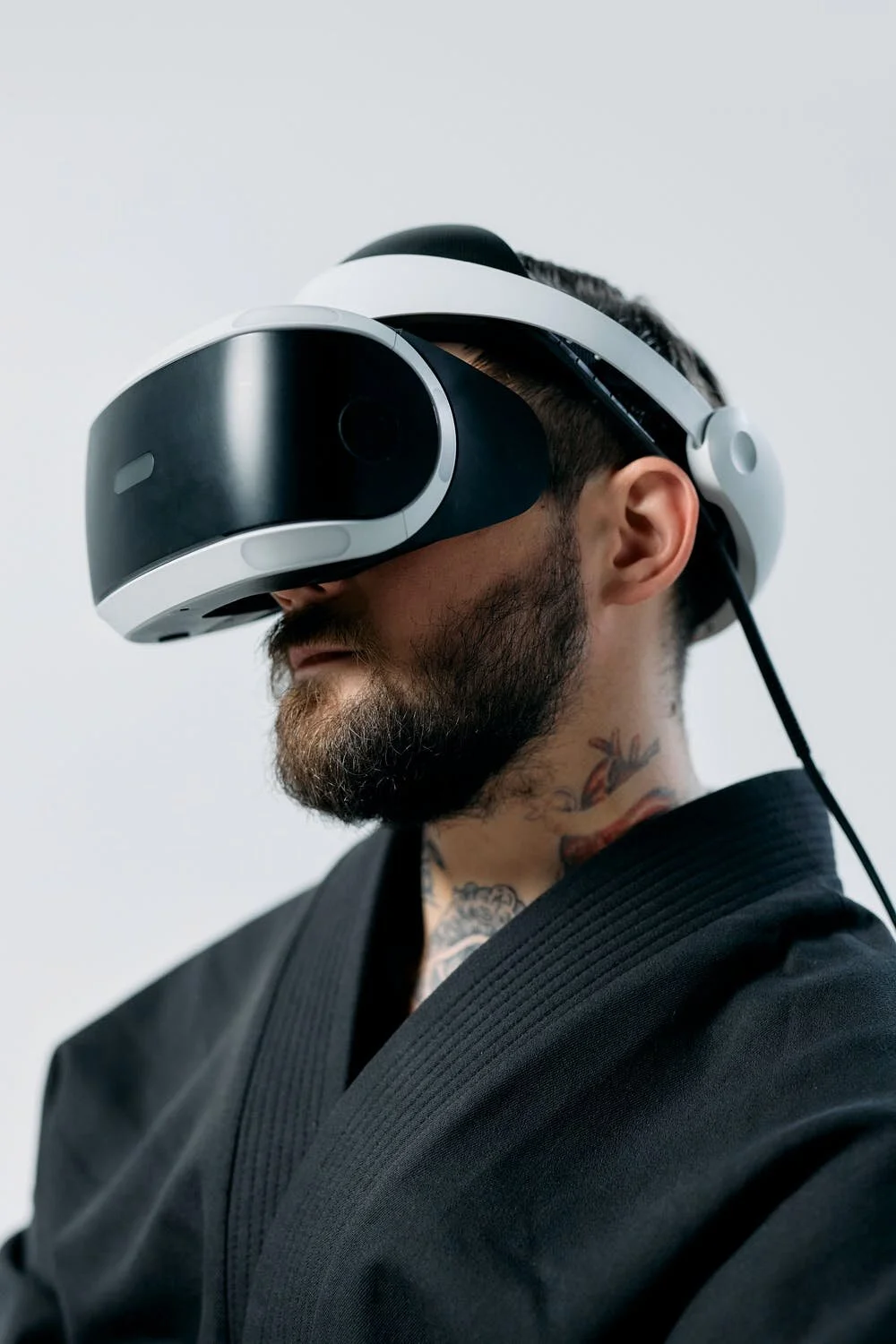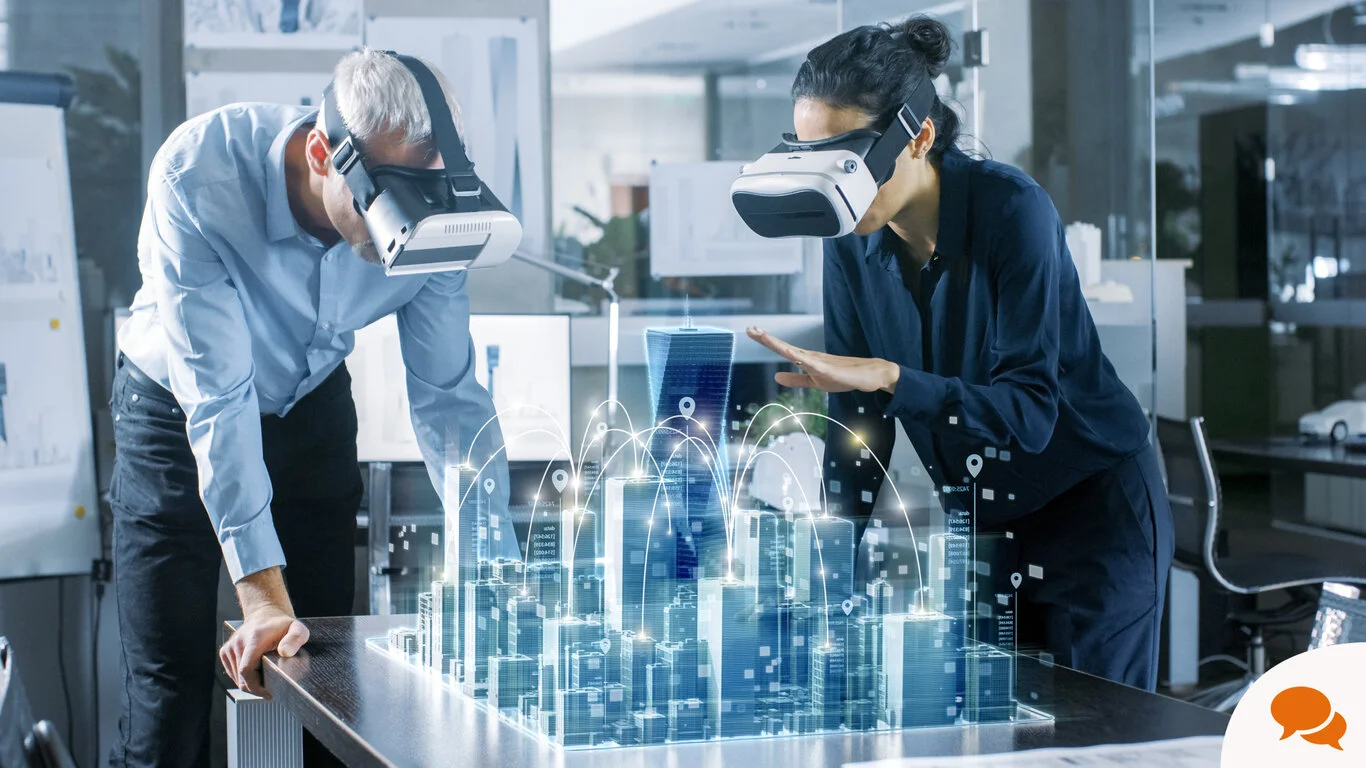Is VR the Future of Business?
Virtual reality (VR) training has the potential to transform business.
Having a solid and robust skills base has never been more crucial as we learn to adapt to changing working environments, from a remote-based workforce to the challenges caused by the long-term effects of Covid-19. In light of these changes, now is the moment to implement new methods to skill development. As a result, many businesses would benefit from virtual reality training.
What is VR Training
Virtual reality training is an immersive learning experience that replicates real-world surroundings and simulates work challenges. It allows employees to receive on-the-job training in a risk-free setting where they can learn by doing. Skills taught in VR have a high retention rate, which means they are more likely to be implemented in the workplace and, as a result, lead to higher productivity.
Benefits of VR Training
According to a recent analysis by PWC, learners were four times faster to train in VR and 3.75 times more emotionally connected to content than in the classroom. In addition, learners were 275 per cent more confident in applying skills learnt following training and four times more engaged than their e-learning colleagues.
VR training is appealing because it provides a safe setting to master high-risk skills by simulating dangerous job environments. Virtual reality has been utilised in various industries, from defence and aerospace to oil and gas, to recreate potentially disastrous circumstances without jeopardising safety.
It's also an effective tool for highly skilled and technical training when errors are common but costly. For example, surgeons are increasingly using virtual reality training to understand and perform complicated surgeries. In addition, VR training assists engineers and construction professionals in optimising performance and improving collaborative and interdependent workflows.
VR provides a secure and responsive environment for learning various soft skills and stimulating behavioural change, ranging from management and leadership to speech delivery and customer service, thanks to artificial intelligence.
Virtual reality training has various advantages for your employees' professional development and motivation. Virtual reality training is a fantastic tool for companies committed to long-term success when combined with better productivity, reduced downtime, and significant cost savings.
One of the most common uses of VR in staff training is to generate realistic role-specific scenarios. Companies may create all kinds of experiences that would not have been feasible otherwise by controlling this virtual world. In addition, these situations can be modified to mimic potential business crises, allowing companies to assess users' stress levels and problem-solving abilities.
The ability to teach staff crisis management is a beneficial aspect of this. For example, if a job requires a high level of risk or danger, VR allows the person to learn how to handle the circumstance without any potentially detrimental consequences.
Virtual Reality Training Workplace Implementation
To maximise the impact and success of a VR training programme for your company's learning and development portfolio, careful consideration must be given at all levels of planning, delivery, and evaluation. You'll need a clear understanding of your company's training requirements, as well as expertise in training development and technical innovation.
Make sure you know what you want to accomplish. You can start planning the content for your training interventions by clearly outlining what challenges need to be addressed by training, what the present situation is, and where you want your team's skill levels to be.
To avoid virtual tiredness, get your timing correct. Being in a virtual world can be a challenging experience, especially if unfamiliar with the technology. Make your virtual training sessions as brief as possible. The best way to learn is in bite-sized modules; each practical session should last no more than 20 minutes. If an employee is working through multiple sessions in one day, make sure they take regular breaks to return to the real world.
Not all employees will be confident or comfortable using virtual reality at first. Consider easy kit training exercises and clear user manuals when incorporating immersive technology into your training portfolio. It's also a good idea to explain why you're using this innovative training and how it will benefit their personal development. Make sure you've completed the essential risk assessments to guarantee that all staff are safely receiving training. For example, practising in a suitable physical location is vital; keep in mind that you're blind in the real world when you're in VR, so colliding with other objects is a possibility! In training, the ability to monitor and analyse performance in VR training is a game-changer. Your employees' every move, from hand gestures to eye movement and their interactions and responses, can be captured during the event. This data is priceless when it comes to planning and reviewing training sessions. You'll be able to judge what
works – and, more crucially, where modifications are needed — by introducing testing the software and analysing the data.
It is beneficial to a company's reputation and profitability to attract and retain highly skilled and motivated staff. Investing in innovative, practice-based training programmes helps create a work environment where people are motivated, engaged, and better equipped to perform their duties. Furthermore, increased efficiency can lead to increased productivity, a desirable prospect for any organisation to expand and thrive. In addition to the fragmentation of workplaces caused by globalisation and remote working, adopting innovative new training programmes is a critical aspect of a company's commitment to growing in response to our changing reality. VR and training may offer an ideal solution to keep your staff highly skilled, engaged, and productive – just when you need them to perform at their best, thanks to recent advancements in immersive technology.
Looking for new ideas to market your business? Get in touch with a member of the team today!




![[ANNA]+article+signiture.jpg](https://images.squarespace-cdn.com/content/v1/5bb9dac965a7079ae2621d3b/1626692032724-CNTDDKM4P20XZ8RZFFJ0/%5BANNA%5D%2Barticle%2Bsigniture.jpg)